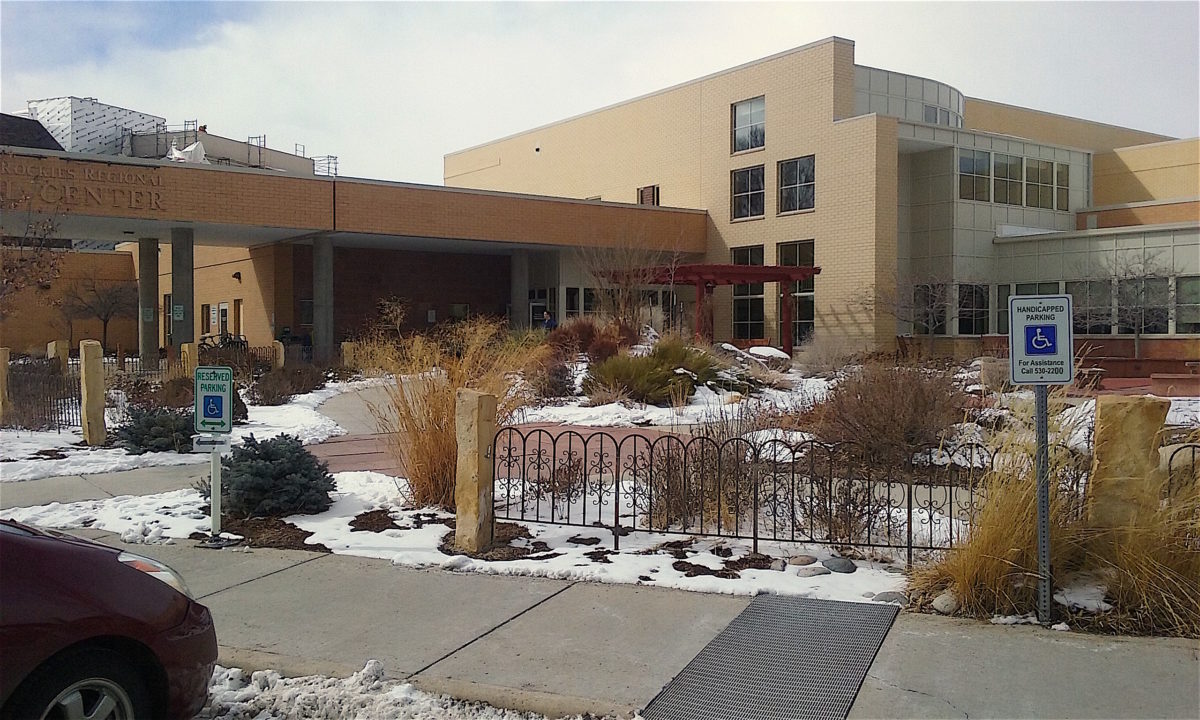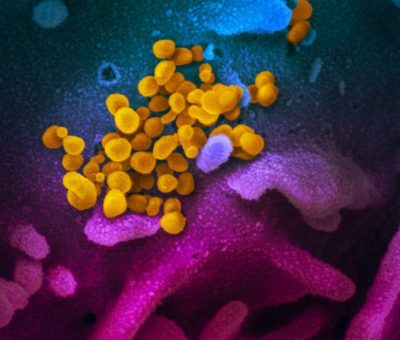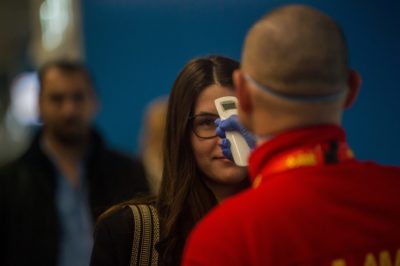
Heart of the Rockies Regional Medical Center
Early into the spread of the so-called coronavirus, (COVID-19 is the official medical designation) experts at Heart of the Rockies Regional Medical Center are already working on planning and preparation for handling any prospective patients. Across Colorado in local areas, facilities such as HRRMC are in a monitoring stage.
Tues. March 2, the hospital conducted a COVID-19 drill to test systems and procedures, according to Marketing and Public Relations Manager Allison Gergley. The drill was planned by Infection Prevention Manager, Tracy McConathy, working with Emergency Management Coordinator Mark Rowland in strategic planning.
“Both are keeping managers of the hospital updated several times a week on information we’re receiving from Public Health and overall updates on the virus nationwide so we know where Colorado, and Chaffee County specifically, stand with the outbreak,” said Gergley.

A microscopic image of the COVID-19 virus. Image courtesy of the Rocky Mountain Laboratories of the National Institute for Allergy and Infectious Diseases.
The drill and review included as many as 30 department heads, Public Health officials and key personnel, noted Gergley, covering areas including testing, supplies, procedures and precautions.
As with many other medical providers, the hospital already has policies in place for infections such as influenza. Policies already in place also prepare for a mass influx of potentially infectious patients and include a bioterrorism readiness and pandemic influenza plan.
A mass patient influx drill was tested at HRRMC last fall, noted Gergley.
Also reviewed were criteria for identifying potential COVID-19 infected patients. Key factors include whether the patient traveled in the past 14 days to any of the five countries of concern; China, South Korea, Italy, Japan or Iran, and has signs of a respiratory illness such as a cough, shortness of breath or fever. If these factors are present, a mask is given to that person and they might be instructed to go home and self-isolate.
Public Health would then come into the situation, said Gergley and “they would assess that person’s symptoms, and if they meet specific criteria, Colorado Department of Public Health & Environment (CDPHE) would get involved in the testing process at that time.” Treatment decisions would follow the diagnosis.
As of Tuesday, about two dozen people in Colorado had been tested for the virus. All so far came back negative, with a few tests still awaiting results.
Care for crucial healthcare workers is also imperative.
“We need to make sure our healthcare workers are safe and in good health, so that they can continue to provide medical care and services to our community if any type of medical emergency does occur in our area,” said Gergley, adding that if workers display any types of those symptoms themselves, they automatically cannot come to the hospital for 14 days.
On local levels throughout the state, facilities such as HRRMC are in a monitoring stage. “We have policies and procedures in place, but are continuing to think about what else will need to be done as we monitor the situation, thinking about what needs to be done,” said Gergley.
Gov. Jared Polis announced Tuesday that the state’s emergency readiness has been elevated to the second highest level as concern over COVID-19 grows, although there were no known cases of the virus identified in the state at the time.

A growing number of airports around the world are screening passengers for coronavirus. Featured photo illustration by Zoltán Balogh/MTI courtesy of Hungary Today.
State health officials said state laboratories are now able to test for the virus without having to send tests outside Colorado.
News reports in Colorado indicate that while a true pandemic would be unprecedented, many hospitals already prepare for large disease outbreaks, such as the seasonal flu.
Still, some reports indicate that the free mask boxes commonly seen in medical office waiting rooms for patients with respiratory illnesses are becoming less visible, or sometimes are kept behind the counter. This is due, say some clinics and hospitals. because some people are coming in just to get a free mask for themselves, and leaving.
The Colorado Sun quoted Lyle Moore, director of emergency preparedness for the Colorado Hospital Association (CHA) as saying the majority of hospitals plan and train for such occurrences regularly, reviewing and updating plans.
This influenza season has already been a bad one, with some 2,800 people in Colorado hospitalized for flu illness, which can stress hospital capacities.
Supplies are another concern, with some health providers reporting their supply chains have been impacted by worldwide demand for medical supplies such as masks, test kits and syringes.
One local dentist reported his masks and other supplies were now on a minimum four week waiting period for resupply. The same dentist said he had an acquaintance come in looking to buy a few masks, saying he could not find any local supply for himself last week.
As far back as December 2019, Robert Kadlec, Assistance Secretary for Preparedness and Response at the Department of Health and Human Services reported the U.S. lacked raw materials and/or manufacturing capacity for pandemic countermeasures – from protective equipment, vaccines and therapeutics to needles and syringes. It also reports that global manufacturing capacity would likely not be enough to meet demand.
Vice President Mike Pence, who President Trump put in charge of the COVID-19 response, has said the government will work with manufacturers here to produce millions more masks per month, but without any timetable details.
The Sun reported that while the state and federal government maintain stockpiles of supplies for disease outbreak, Colorado also has a memorandum of understanding between collaborative rural health provider groups to work together on supplies and capacity in any crisis.
While public perception from media reports may range from near disbelief to panic about the virus, there are reliable sources of information, including phone numbers for the Colorado Department of Public Health and Environment, Gergley notes. People with questions can call help lines at 303-389-1687 or 877-462-2911.








Recent Comments